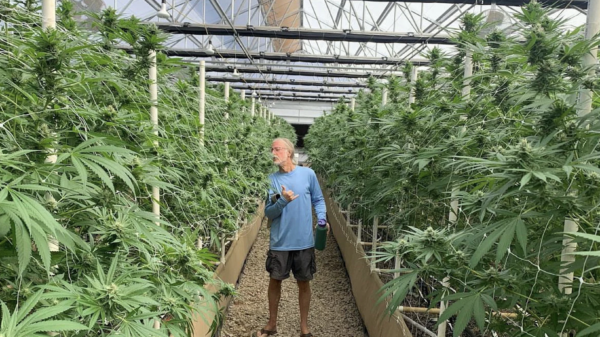An advocacy group in the United Kingdom is calling on lawmakers to apply social-equity principles when the country legalizes recreational cannabis use in the coming decade.
Drug policy reform non-profit Release published a report this month proposing an evidence-based roadmap to prioritize and protect vulnerable people in a legal market while ensuring the benefits of cannabis regulation for all.
The document builds on the organization’s previous research on the disproportionate policing of ethnic minorities, like Black people being stopped and searched at over eight times the rate of white people.
Among 14 proposed principles for a future cannabis market, the organization says that decriminalization should go hand-in-hand with regulation by removing sanctions for cannabis regardless of its source. Personal cultivation should be just as legal as brewing your own beer.
The group recommends that tax revenue be invested in communities impacted by over-criminalization, that records for past cannabis convictions be automatically expunged and programs be put in place to actively support people criminalized under cannabis prohibition.
The report follows an announcement earlier in January from London Mayor Sadiq Khan’s office that several boroughs in the city were being considered for a program that would decriminalize possession of weed for young people.
Read more: London boroughs set for trial to decriminalize cannabis for young adults
Read more: UK’s medical pot industry could reach £1.2B through reform: report
Regulating Right Repairing Wrongs lays out the foundational principles for the future of British cannabis.
A number of US states, in particular #NewYork and #Massachusetts, have paved the way for a social and racial justice model of cannabis reform. pic.twitter.com/XiDohGSfBs
— Release Drugs – @releasedrugs.bsky.social (@Release_drugs) January 12, 2022
It’s just a matter of time until cannabis becomes legalized, drug policy experts say
“The UK Government’s new drug strategy regurgitated a ‘tough on drugs’ rhetoric, despite the Home Office’s own research concluding that the estimated £1.6 billion spend per year on drug law enforcement is not impacting levels of drug use,” Release policy lead Laura Garius said in a statement.
With cannabis being so widely used in the U.K. and the world, Garius says it’s just a matter of time until governments join the lucrative recreational cannabis market.
“However, we must make sure that cannabis will be regulated right,” she explains. “The legal renaissance of cannabis is a vital opportunity to address the harm that cannabis prohibition has caused to Black and brown communities and to people with lived experience of cannabis policing.”
Read more: UK man put the weed in the coconut and got locked up
Read more: Three men jailed after UK agency finds 1,500 weed plants in abandoned nightclub
Other policy analysts, including Steve Rolles at Transform Drug Policy Foundation, say legal regulation of cannabis markets isn’t a theoretical discussion, but something it is being debated and implemented around the world.
“The inevitability of change creates a responsibility on policymakers to ensure that reforms serve the needs of the whole community, not just the profit-seeking priorities of big corporate actors,” Rolles says.
Ben Lawrie, the Scottish Liberal Democrat and spokesperson for Drugs Policy says that with the growing acceptance among the general public along with the economic opportunities of the industry, cannabis legalization is inevitable and prohibition causes more harm than cannabis ever could.
“Cannabis must be legalized now and the principles outlined in this paper must be included in any moves to legalize and regulate it,” Lawrie says. “This would ensure that historical and ongoing injustices are addressed, and racial disparities are reduced rather than reinforced in the new regulatory landscape that emerges.”
Follow Natalia Buendia Calvillo on Twitter
natalia@mugglehead.com













